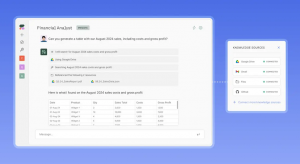Here’s Why Demand Media Valuation Is Greater Than NYTimes
CNNMoney reported:
Shares of online content creator Demand Media closed 33% higher Wednesday, following an IPO that valued Demand at more than $1 billion.
…That gives Demand a valuation of $1.5 billion — more than the New York Times Co (NYT), though less than other media stalwarts like Gannett Co. and Washington Post Co.
That’s also the highest market capitalization for an Internet company since Google’s IPO in 2004, according to research firm Renaissance Capital.
While its valuation might seem surprisingly high compared with the New York Times, it’s investors clearly believe it has a brighter future than the Gray Lady. And here’s why it deserves it:![]()
Unlike the New York Times, which is trying to adjust its business model to cope with the harsh economic realities of online media, Demand Media was designed from the ground up for precisely these economies.
It might shock the newspaper industry that an online article is only worth say $50 over its lifetime, but that’s the harsh reality. Demand uses its algorithms to figure out what people are searching for and how much it can earn in advertising dollars from each article over a five year period.
It’s very clinical and very sensible.
– The New York Times has to figure out how to squeeze its legacy costs into the tight corset of the online media economy. Demand Media doesn’t have that problem, it is a child of this media economy, it can grow with it, it can change with it — and still profit.
– Demand has a business model that works and one that’s finely tuned to online media markets — the New York Times does not. The New York Times is far behind, it is still trying to figure out its business model. It is experimenting with a paywall for the second time.
That’s why it’s not too outrageous to see Demand Media with a higher valuation than the New York Times.
Quality versus meh content
This is an interesting story because it is also seems to be a commentary on how the stock market values quality content over mediocre content. And it seems to prefer mediocre content producers … but that’s not a fair assessment.
The reality is that it is very difficult to monetize quality content on the Internet. The rewards for producing quality content aren’t that much greater than for mediocre content. NYTimes uses Google Adsense on its front page. Anyone can sign up for Google Adsense and host the same ads and reap the same rewards.
The problem is that there is no adequate reward system, on the Internet, for quality content – that’s why journalists are losing their jobs.
The discovery of a business model that rewards quality content over mediocre content, would make an important impact on society – it’s the Gordian Knot of our times. If someone solves it then we all solve it because we can apply that business model across all online media.
Will the Demand Media business model become the de facto new media business model?
It has to be more than that. The Mew Media Corp of the future will use a business model I call a Heinz 57 business model – multiple varieties of revenues; adverts, paywalls, lead generation, virtual goods, conferences, events, etc.
Multiple revenue streams in different forms for different publications. And it is this management of multiple revenue streams that will create successful new media companies.
Demand Media has the opportunity to add revenue streams and that means its profitability can improve without increasing its costs of production. Demand can take advantage of new revenue opportunities as they occur.
NYTimes can do the same but it also has the distraction of trying to manage a tricky downsizing.
Media deflation…
The challenges to Demand’s business model are the same as those of the New York Times: the value of content dropping over time. Demand calculates the value of an item of content five years ahead – but what if that forecast is wrong?
Every piece of media has to compete for the attention of a finite pool of readers/consumers. There’s a media tsunami happening and so there is greater competition, from an ever greater amount of media. T
This is a trend that amounts to a devaluation of all media content – mediocre or top-quality, they all face the same deflationary cyclone.
Also, will Demand exhaust most of the low-hanging fruit? How many “How to” articles can be written or videoed before you start moving into esoteric territory where the advertising gains are limited?
The algorithmic threat…
The threat from Google cutting out spam content is over blown and misunderstood. Demand’s content is basic but it’s not terrible, it is certainly far from being classified as spam.
Industry observers such as Danny Sullivan, from Search Engine Land, like to point to a recent Google post about changing the algorithm to get rid of spammy results, as a potential problem for Demand.
But Google isn’t referring to Demand Media. It would be very simple for Google to get rid of Demand’s content from the top of its indexes, Google is targeting outright spam.
Google changes its algorithm on a regular basis to shakeout those that are gaming the system too closely. Demand can easily tweak its SEO to accommodate any changes in the algorithm, without violating any of Google’s rules. And it can make those changes across a huge amount of content — that’s the beauty of scale.
It’s easy to see why Demand Media has a high valuation because it can adapt to the changing media landscape and importantly — it knows how to make profits in an industry where many are struggling to keep the lights on. The New York Times for example, had to sell its new office building and lease it back.
[Cross-posted at Silicon Valley Watcher]
A message from John Furrier, co-founder of SiliconANGLE:
Your vote of support is important to us and it helps us keep the content FREE.
One click below supports our mission to provide free, deep, and relevant content.
Join our community on YouTube
Join the community that includes more than 15,000 #CubeAlumni experts, including Amazon.com CEO Andy Jassy, Dell Technologies founder and CEO Michael Dell, Intel CEO Pat Gelsinger, and many more luminaries and experts.
THANK YOU













